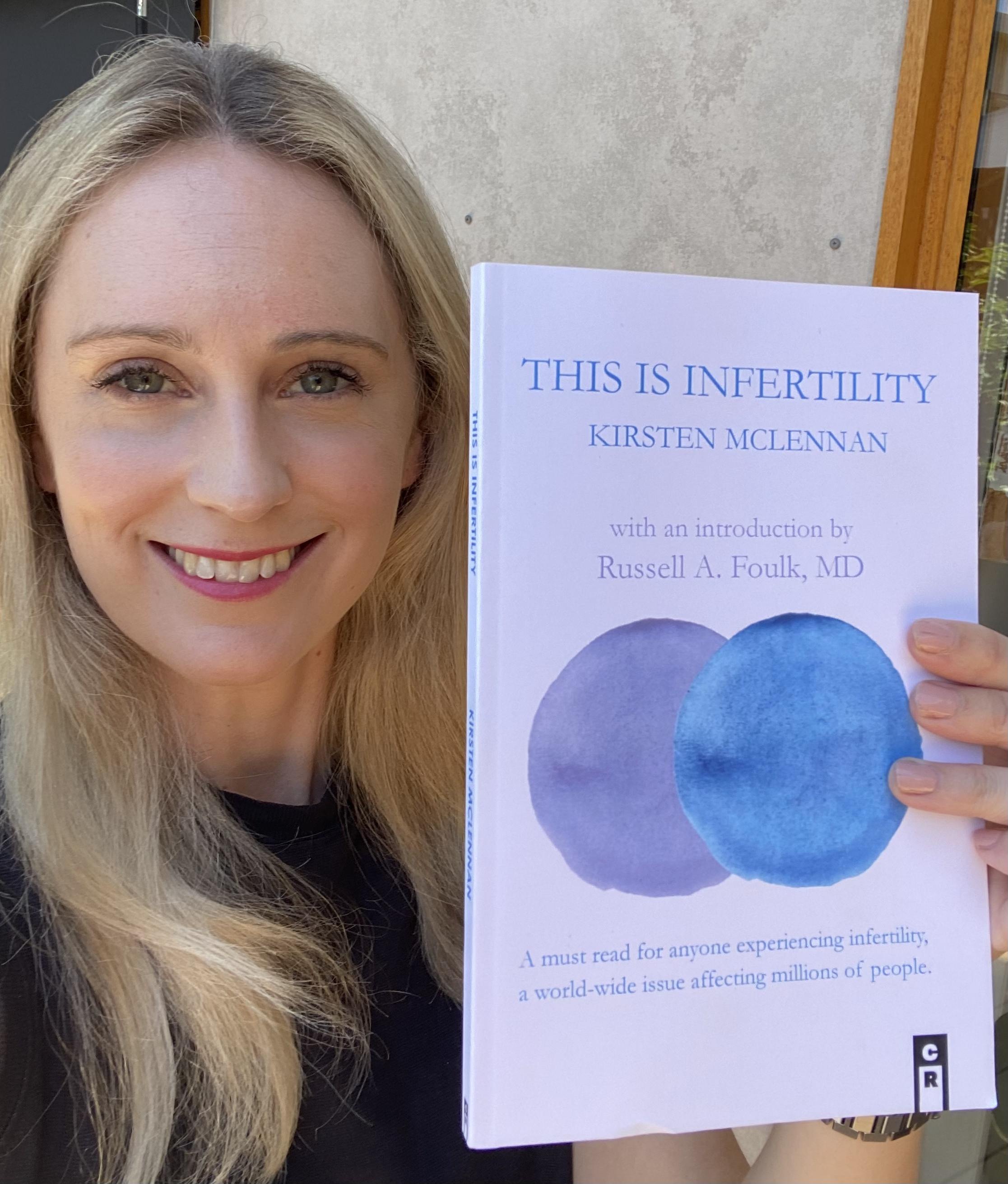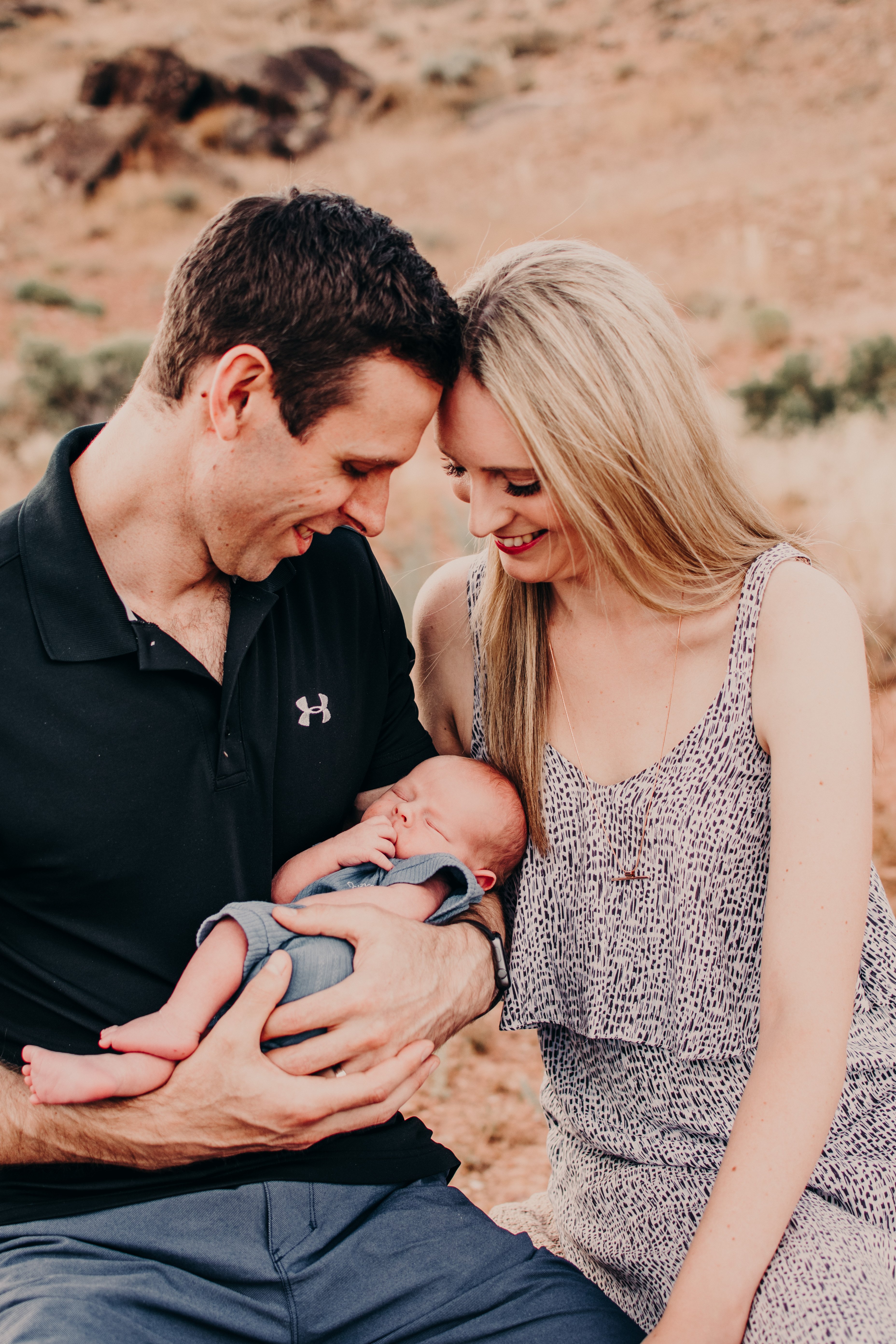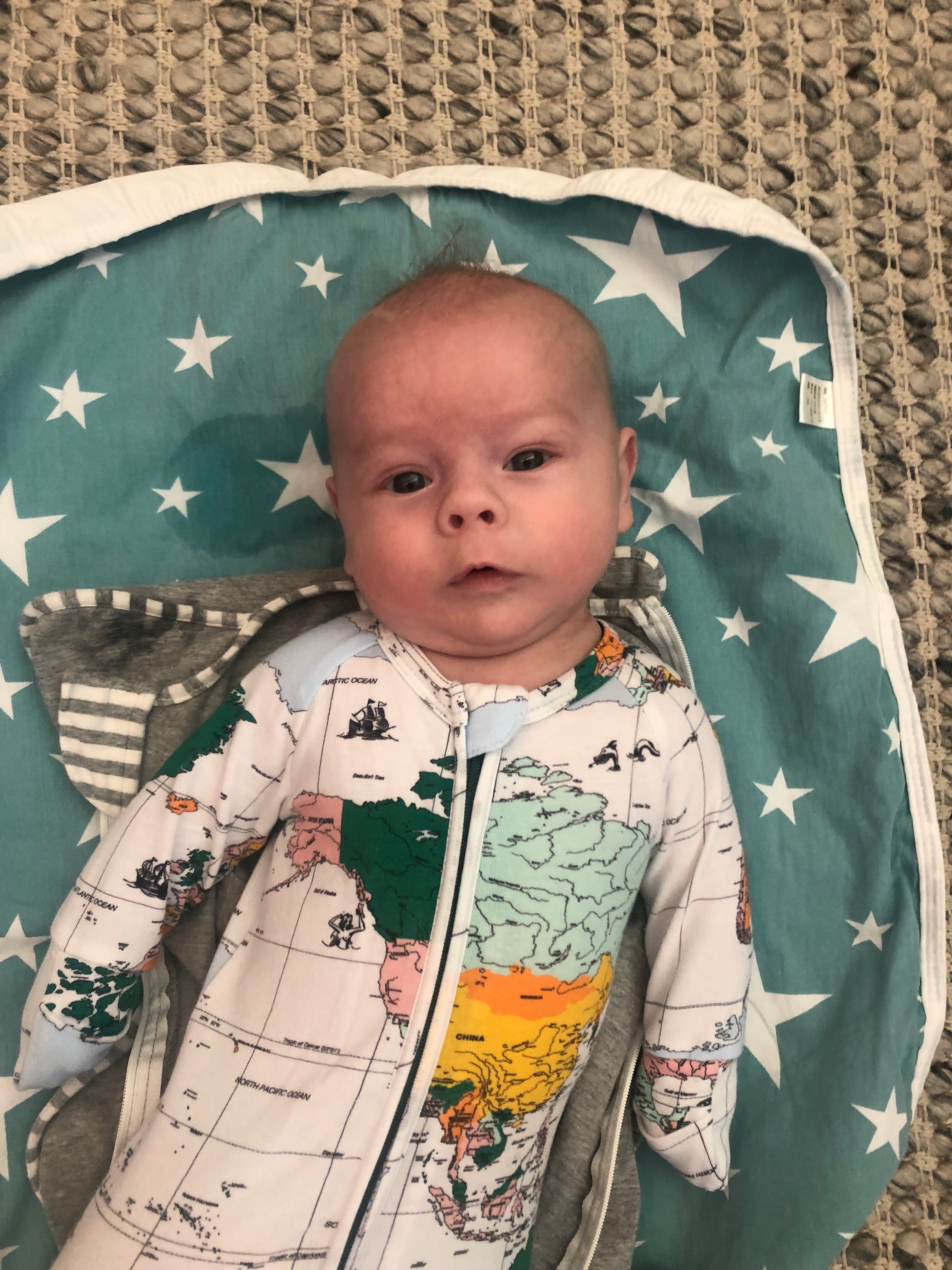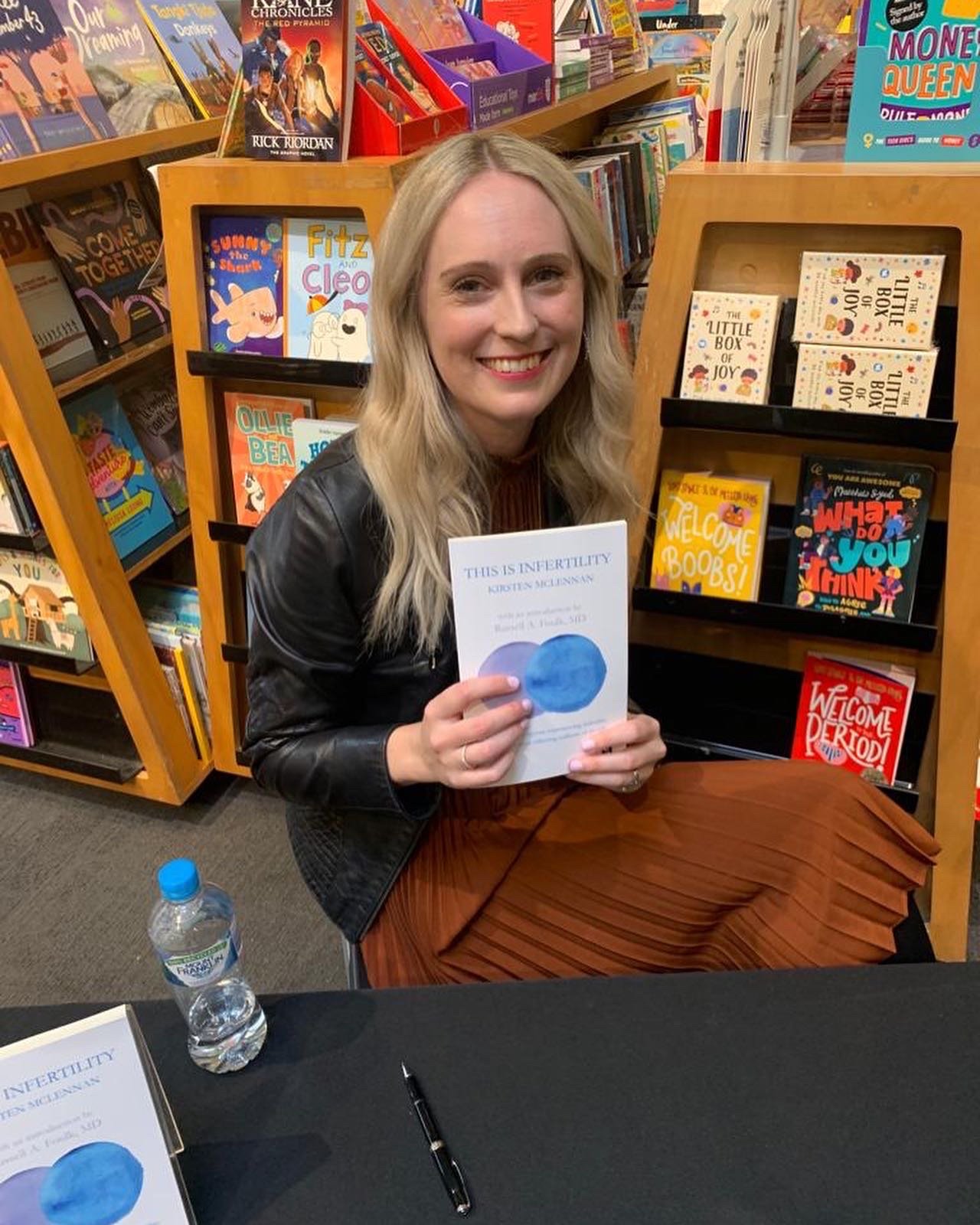On this World IVF Day, we have the privilege to speak with Kirsten McLennan, author of This Is Infertility, about her inspiring six-year IVF and surrogacy journey.

1. How can we promote a greater awareness and understanding of infertility on World IVF Day (25 July)?
Infertility is a medical condition, a reproductive disease. It can be incredibly painful, raw, and often lonely. 1 in 6 couples worldwide have infertility. And yet despite this, many people don’t understand what infertility is. And even worse, there’s still a stigma surrounding it. There absolutely needs to be greater awareness of what infertility is and how people can help those going through it.
For anyone who has a loved one with infertility, the best thing you can do is to recognise it’s a medical condition and to not offer any advice. Anyone going through infertility will get professional advice from the medical experts. You just need to be there for them, acknowledge their pain, and simply ask, “how can I best support you?”
World IVF Day on 25 July is a terrific opportunity to talk about infertility and promote awareness. One simple way to do this is through sharing posts on your social media platforms. There’s plenty of fantastic infertility Instagram profiles with daily posts about what infertility is and the support available.

2. Can you share your story and how your successfully overcame your infertility challenges, offering hope and encouragement to others?
Over six years, my husband Ryan and I had countless failed IVF cycles and three pregnancy losses. We did have our happy ending though - we were blessed with our beautiful son Spencer who was born through gestational surrogacy in the USA in 2019.
It was a long six years though and a really difficult time. Infertility treatment can take a huge toll on your mental and physical health, your work, and your relationships. It’s a roller coaster of emotions. You can feel despair, anger, and guilt. You’re often bracing yourself for something to go wrong. On the other side of things, you can feel optimistic and hopeful. Whenever we received positive news, I always had a rush of adrenalin. But excitement one week and dread the next - working through those contrasting emotions, for years, was mentally and physically exhausting.
I’m grateful we had plenty of support during our journey as I think that’s invaluable. We had amazing friends and family who always rallied around us, and I also saw a counsellor who helped me to work through everything. There’s also now a tonne of helpful resources available to support people.
-v1688020185197.jpeg)
3. What are some of the most common misconceptions about infertility, and how can we debunk them?
If you look up the definition of infertility by the World Health Organisation, it’s described as a “reproductive disease.” Alongside this definition is a statistic – “186 million individuals worldwide have infertility”. 186 million. And if you talk to people with young children, most will tell you there’s at least one classmate in their child’s class born through IVF. Even so, ask anyone with infertility and they will tell you the most common things people say are - “You just need to relax”, “you just need a holiday”, and “It will happen when you stop trying.”
Dr Foulk, our IVF specialist from Utah Fertility Center who helped us have Spencer, describes infertility perfectly in today’s world - “Unfortunately infertility is still shrouded with mystery, myths, and misinformation like ‘just relax.’ Imagine if we told someone with cancer to ‘just relax’ and you’ll get over it. Stress does not cause infertility, but it does demonstrate the lack of understanding in the general public and the isolative effect it has on patients.”
Dr Foulk is spot on. My hope is that there comes a day soon though when people struggling with infertility will no longer suffer in silence and will no longer hear the words, “you just need to relax.”

4. What resources or support networks are available for individuals and couples struggling with infertility worldwide?
I recommend connecting with the #ttc (trying to conceive) community through Instagram. You can also check out my Instagram page @straight.up.infertility as I regularly post about what infertility is and how to support people.
A couple of other Instagram pages I highly recommend are – Ceci at @ceci_fertilityhand and Ola at the @fertilityconversations. Ceci has a business Fertility Hand Collective which is an incredible resource to help people with infertility. And Ola is a fertility coach and has a terrific podcast.
IVF Babble is another great resource. It’s the world’s leading online fertility community and magazine and it has plenty of useful articles and resources.

5. Can you tell us about your book This is Infertility?
My book This is Infertility was released worldwide in November last year through C&R Press, USA. This is Infertility is the story of our 6-year IVF and surrogacy journey.
I share my experience with IVF, pregnancy loss and surrogacy. I don’t hold back. I’m very candid about the challenges and heartbreak we faced. While this is my personal story, This is Infertility also provides factual insights and knowledge into infertility and surrogacy and what people can expect. I hope my book helps people with infertility and that there will come a time soon when infertility is better understood, and people will no longer suffer in silence.








